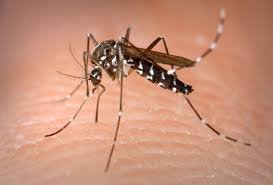By Vivian Ihechu
No one should die from malaria in Africa because malaria is preventable and treatable, Dr Akpaka Kalu of the World Health Organisation, African Region (WHO-Afro),reechoes on Thursday.
Kalu, who spoke to the News Agency of Nigeria (NAN) as the world marks 2024 World Malaria Day, said the number of deaths from malaria every year in Africa was an indictment of our health systems and leadership.
Kalu is the Team Lead, Strategic Planning and Policy, Communicable & Non Communicable Cluster (UHC/CND) at WHO African Region.
He said: “No one should die from malaria in Africa; indeed, every single malaria death is a death too many because malaria is preventable, treatable
“The death of many people – children and pregnant women from malaria every year in Africa is an indictment of our health systems and leadership.
“It shows failure to tackle malaria effectively and sustenance efforts and progress made at its elimination.’’
Malaria is an acute febrile illness caused by Plasmodium parasites, which are spread to people through the bites of infected female Anopheles mosquitoes.
He also said that though some progress had been made in the fight against the malaria scourge, there were also some challenges.
He said: “We made progress between 2000 and 2015 and since 2015, the progress stagnated for various reasons.
“In the last two years, it seems like we’re facing reversals in the gains that we’ve already made, and the reasons are many.’’
He said that the declining coverage with preventive interventions were some of the core challenges.
“Interventions like bed nets, indoor spraying, other preventive technologies include preventive chemotherapy, giving medicines to people in certain geographical areas to prevent bouts of malaria, ’’ Kalu said.
He, however, told NAN that the introduction in 2023, of WHO’s approved two malaria vaccines for use, had raised hopes.
The vaccines, when given to those in moderate to high transmission areas, will result in reduction of the malaria burden and reduction of malaria deaths.
Kalu said, “So, it’s a good thing to introduce. Malaria is being fought with an armory of imperfect tools.
“You know, we have nets, indoor spraying, medicines, diagnostics, vaccines, and all these must be put together and used together to have impact.
“We don’t have a magic bullet. We’re looking forward to that magic bullet and future.
“At this point in time, even when a child is vaccinated, they should still sleep on their mosquito net to enhance impact on interventions.
“So, there is no single intervention we will say you use, rather, it is a combination of interventions that will make a difference.
“I know at the household level, that might be cumbersome. But we have what we have, bottom line is that based on available tools, no one should die from malaria in Africa.
“Because, every single malaria death is a death too many because malaria is preventable, treatable.’’
NAN reports that the WHO, in its “Ending disease in Africa: vision, strategies and special initiatives, 2023-2030’’ report, stated that the African Region recorded an estimated 234 million cases of malaria in 2021.
This is approximately 95 per cent of the 247 million global cases.
Also, the World Malaria Report 2022 found that Nigeria (27 per cent), the Democratic Republic of the Congo (12 per cent), Uganda (5 per cent) and Mozambique (4 per cent) reported almost half of the global cases.
These data represent extraordinary progress in malaria control.
Case incidence had fallen by 39 per cent, from 368 per 1000 population (SDG3.3.3) in 2000 to 222 in 2019.
However, from 2015, the rate of reduction in the incidence of malaria stagnated, decreasing by less than 2 per cent compared to 9.3 per cent every five years from 2000 to 2014.
A related trend was seen in malaria deaths with a 17.3 per cent reduction in global mortality every five years from 2000 to 2014, and a 15 per cent reduction in mortality from 2015 to 2019.
It said that nine countries reported an incidence per 1,000 population at risk of 300–400 in 2020, Nigeria inclusive, with an upward trend observed in Burundi, Chad, Congo and Gabon.
Malaria mortality was highest in CAR (105.2 per 100 000) and Sierra Leone (101 per 100 000).
The WHO says the SDG targets for malaria will not be met if the African Region continues at the current level of intervention. (NAN)(www.nannews.ng)
Edited by Dianabasi Effiong












